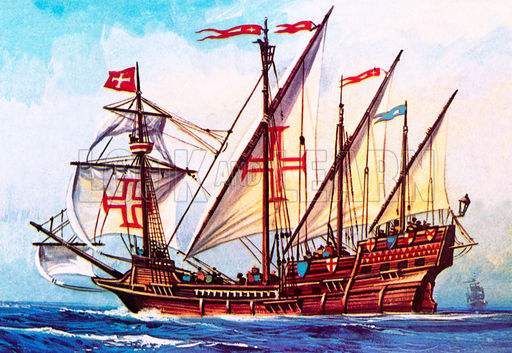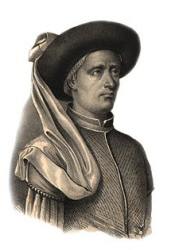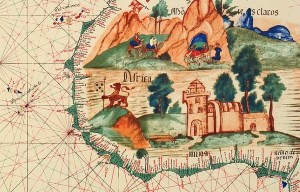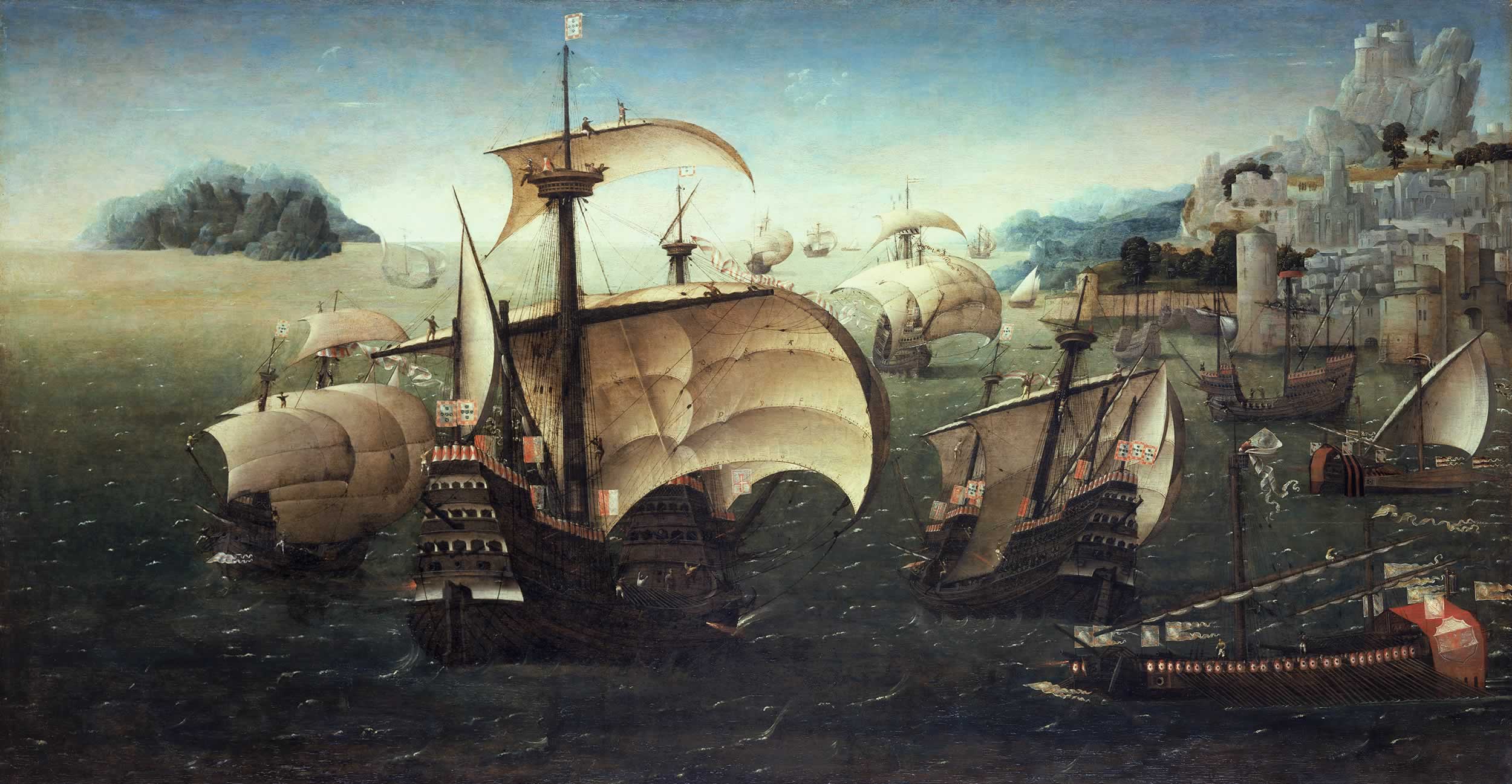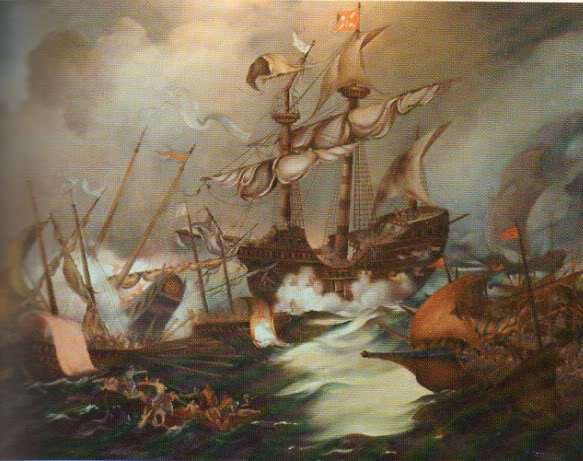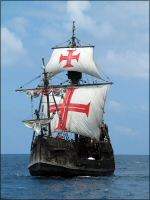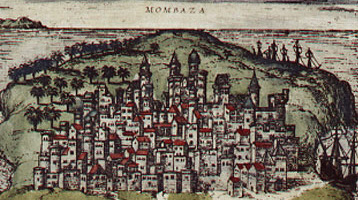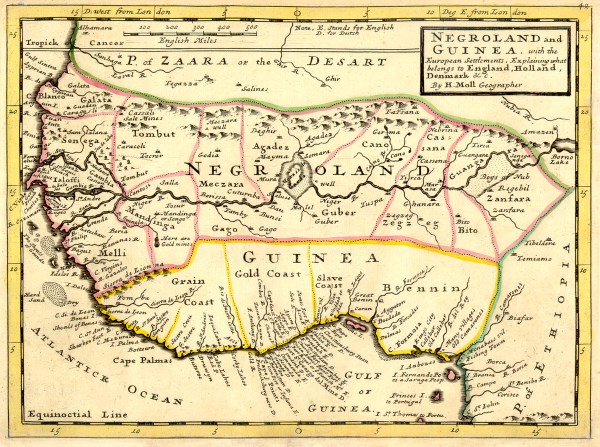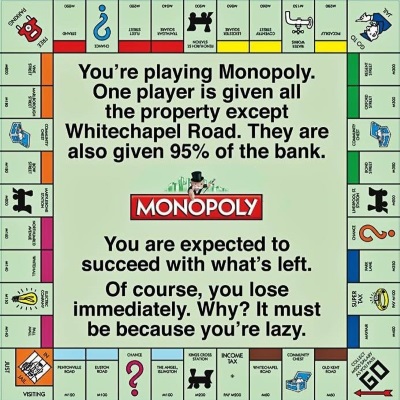Portuguese and Turks Throughout History
From a Turk's point of view
I wonder, how many people on earth is curious about such unusual subjects. For example, who cares about the historical relations between Norwegians and Greeks, or Brazilians and Japanese? There are rather odd, but these unusual subjects have great influence in history and also have echoes in our present life.
Vikings tried to invade Constantinople various times. There are lots of Byzantine myths on this issue and even there's a Goth Pillar in Topkapi Palace in today's Istanbul.
On the other side, there are millions of ethnic Japanese people living in Brazil. They immigrated there in 18th century. This is an oddity just because Japanese people are reluctant to leave their homeland to live in somewhere else. Some of them returned to Japan and constituted a large Portuguese speaking ethnic minority in Japan, and some still living in Brazil.
Like these unusual stories, Portuguese and Turks have lots of common affairs in history.
Henry the Navigator, the quest for Africa
Henry the Navigator
The Portuguese king that built the foundation of the Portuguese Naval Empire
In the 15th century, Turkish sailors and Ottoman Empire had absolute power and influence over Mediterranean Sea. The trade between Europe and far east had been carried through the famous Silk Route.
The Italian city-states (especially Venice) had the monopoly on this trade by paying regular and very high taxes to the Ottoman Empire.
Because of the high taxes and the absolute monopoly, the goods from far east had enormous prices. Black pepper, silk and other goods are the commodities only available for only the very rich and privileged ones.
But the needs of the growing middle-class contradicted this status quo. The European explorers were seeking short-cuts to India.
One of them was the famous Portuguese prince Henry the Navigator. He initiated consequent expeditions to Africa that finally lead to the exploration of an alternative route to India. He himself was never been personally on a sailing ship, put his all efforts supporting the expeditions financially and technologically.
The highly industrious Islamic Arab state Al-Andalus was just defeated from the Iberian peninsula and the scientific know-how of the Arabs were easily adopted by skillful leaders like Henry the Navigator. This helped Portuguese explorers built a naval empire.
Today, the Portuguese language is the 5th most natively spoken language in the world. This is largely the legacy of Prince Henry.
Portuguese Map of West Africa
by Lázaro Luis (1563)
Bilad Ghana – the Land of Wealth
For long years, since 12nd century, the discoverers swept out the western coast of Africa. It was quite obvious that the coast went on with barren desert. Some discoverers claimed that the rest of the coast was just like this, maybe going this way to the "Hell". But some others thought that, after this barren coast, there lied a fertile and prosperous land.
This land was named Bilad Ghana by the Arab geographer Al Idrisi. This term had also been used by Italians and later by Portuguese. And the term evolved to Guinea.
Today, 4 countries are called with the variations of the term Guinea (Guinea, Guinea Bissau, Equatorial Guinea and Papua New Guinea), named by western colonizers as they regarded these territories as Bilad Ghana - The Land of Wealth.
"Bilad Ghana" legend was one of the strong motivations of the Portuguese sailors in the Age of Discovery.
Battle of Diu
Portuguese Carracks off a Rocky Coast
Battles of Indian Ocean
After "Vasco da Gama" reached Calicut, Portugal established the alternative route to India, without paying any taxes to Ottoman Empire. This was simply unacceptable for the Ottomans. This exploration turned out to be the very first step of the decline of the empire.
Sultan of the Ottomans (Sultan Beyazid II) gathered a large armada in the Red Sea harbors of Egypt and sent them to the Indian Ocean.
The Ottomans and the Portuguese navies battled a couple of times in the Indian Ocean. The first one was Battle of Diu in 1509.
When I was a high school student, these intercourses were taught in a section of the history lessons. It was being told that the Ottoman navy fought bravely and swept the Portuguese out of the Indian Ocean.
This information was quite wrong. Maybe they succeeded the Portuguese stay away from Red Sea and Ottoman occupied land, but we all know that Portuguese forces thrived all over Indian Ocean.
The battles of Indian Ocean at the end turned out to be a real failure for the Ottoman Empire . They could only watch the Portuguese and the other European forces enjoy this alternative route to India. The Ottoman navy was strong, but compared to new technology Portuguese caravels, they stood no chance.
In the Second Battle of Diu in 1538, the Ottoman Empire was severely defeated and it was the last confrontation of Turks and Portuguese in Indian Ocean.
Deprived of huge tax income from the silk route, the Ottoman Empire started to tumble and lose power.

